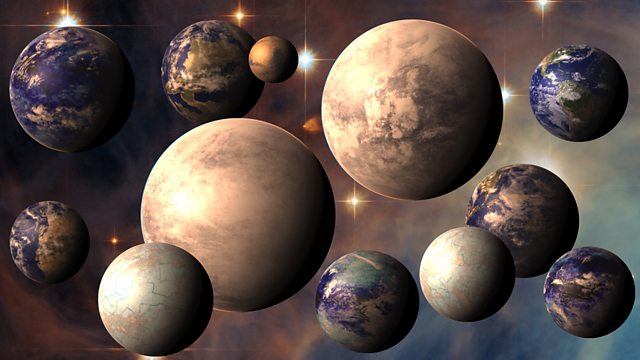The Best Science of 2017
The best science of 2017 - neutron-neutron star collision, weird planetary atmospheres, Cassini, ancient climates, crystal cave microbes and advances in human embryo development
Detecting a ‘Bling Nova’
In the short window of time between the VIRGO gravitational wave detector being switched on, in Pisa in Italy, and the LIGO detector, in the US, being switched off for an upgrade, the teams detected the signal they had hoped for, but dared not expect. A space-altering gravity ripple, followed by a gamma ray burst signal and when the world’s telescopes turned to the Hydra constellation they also saw an optical flash. These signals were from two neutron stars, having danced a death spiral and crashed into one another 130 million years ago. It’s been nicknamed a ‘Bling Nova’, because this massively energetic reaction, is where lots of the gold, platinum and heavy metals in the Universe come from.
Unexpected Exoplanet Atmosphere
A good way of finding out about how our solar system formed is to look at other star systems and their planets. From the exoplanets so far examined in detail, a general correlation has emerged between the amount of elements heavier than helium and hydrogen, in the atmosphere, and the mass of the planet. It’s complicated, but this gives us clues to the size and composition of the planet as well as how and when it formed. But new observations of planet HAT-P-26b, 437 light years away, do not fit this trend. So what’s going on?
Measuring Rainfall in the ‘Green Sahara’
5-11,000 years ago, the Sahara in Africa was green with plant life. Wobbles in the Earth’s rotation about its axis meant that the monsoon covered what is now a vast desert. We know this from ancient lake sediments and archaeological finds. But new work looking at deposits of ancient leaf wax buried in sediment under the ocean is giving clues as to how much rain fell, turning the desert into an oasis.
Britain’s geological exit from Europe
450 thousand years ago Britain was in the grip of an ice age, it has long been thought that Britain’s separation from Europe resulted from spill over from a lake formed in front of the ice sheet but until now it has not been proved. New research shows that this is correct, 450 thousand years ago Britain geologically separated from Europe in two stages – a spill-over from a giant lake, followed by catastrophic flooding.
Ancient Microbes in Crystal Cave
Penny Boston was one of a group of scientists granted access to some scientifically special crystal caves. The researchers have extracted long-dormant microbes from inside the famous giant crystals of the Naica mountain caves in Mexico - and revived them. The organisms were likely to have been encased in the striking shafts of gypsum at least 10,000 years ago, and possibly up to 50,000 years ago.
Critical Gene for Embryo Formation
In the first few days after conception, the fertilised egg subdivides first into two cells, then four and so on. It eventually becomes a hollowed out ball made up of about 200 cells called a blastocyst. The gene for a protein called OCT4 appears to be critical in deciding how that embryonic foundation gets established.
Synthetic Embryogenesis
Two thirds of pregnancies fail in the first few days after fertilization. Researchers wanting to study and understand human embryo development, at these early stages, have so far struggled to get embryonic stem cells to develop into embryos in the laboratory. But now they have partnered the stem cells that develop into the embryo, with stem cells that develop into extra-embryo structures, like the placenta and yolk sac. When they add a synthetic scaffold for the cells, they manage to get the embryo to develop in what looks like a normal way.
Picture: Exoplanets, Credit: PHL@UPR Arecibo (phl.upr.edu) ESA/Hubble, NASA
Presenter: Roland Pease
Producer: Fiona Roberts
Last on
More episodes
Broadcasts
- Thu 28 Dec 2017 20:32GMTÂ鶹ԼÅÄ World Service Online, Americas and the Caribbean, UK DAB/Freeview & Europe and the Middle East only
- Thu 28 Dec 2017 21:32GMTÂ鶹ԼÅÄ World Service Australasia, South Asia & East Asia only
- Fri 29 Dec 2017 05:32GMTÂ鶹ԼÅÄ World Service except Australasia, East and Southern Africa, News Internet & West and Central Africa
- Fri 29 Dec 2017 07:32GMTÂ鶹ԼÅÄ World Service Australasia & East and Southern Africa only
- Fri 29 Dec 2017 15:32GMTÂ鶹ԼÅÄ World Service Australasia
- Fri 29 Dec 2017 18:32GMTÂ鶹ԼÅÄ World Service East and Southern Africa & West and Central Africa only
- Sun 31 Dec 2017 12:32GMTÂ鶹ԼÅÄ World Service except News Internet
- New Year's Day 2018 03:32GMTÂ鶹ԼÅÄ World Service West and Central Africa
Podcast
-
![]()
Science In Action
The Â鶹ԼÅÄ brings you all the week's science news.


